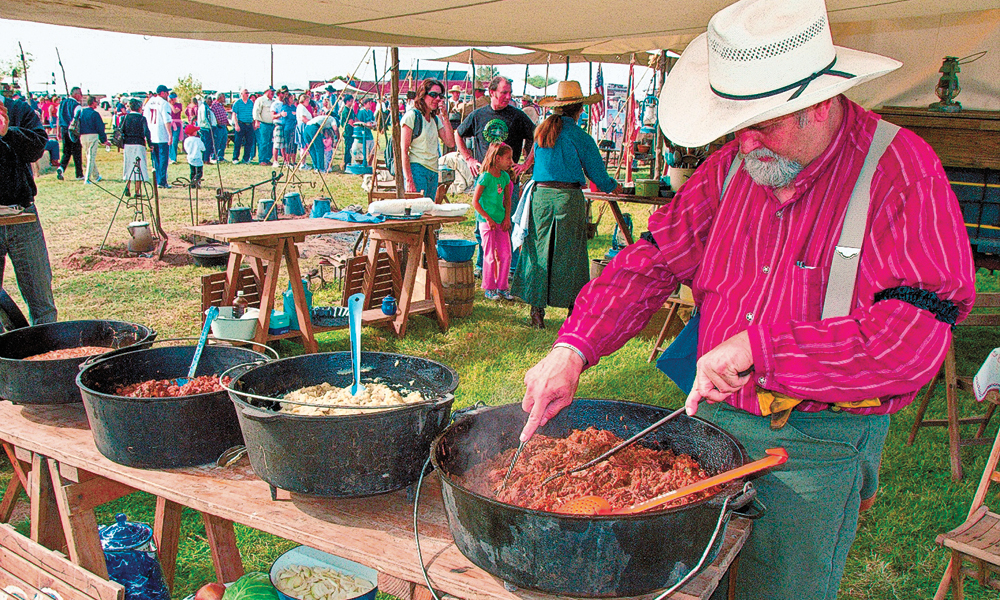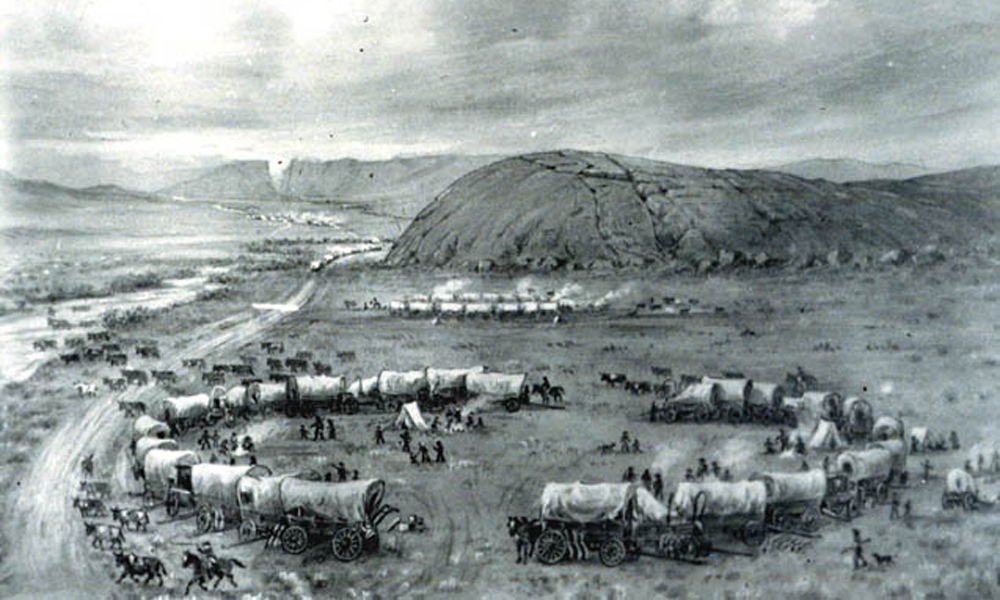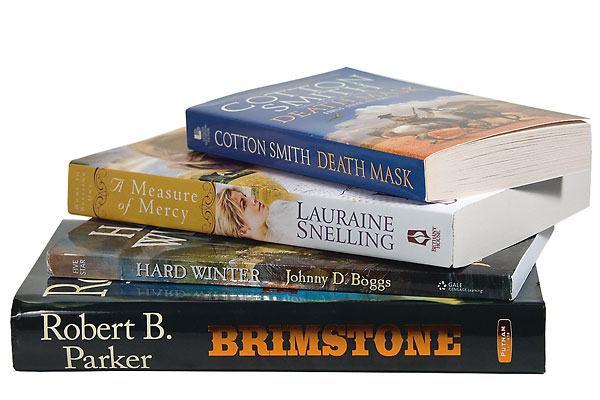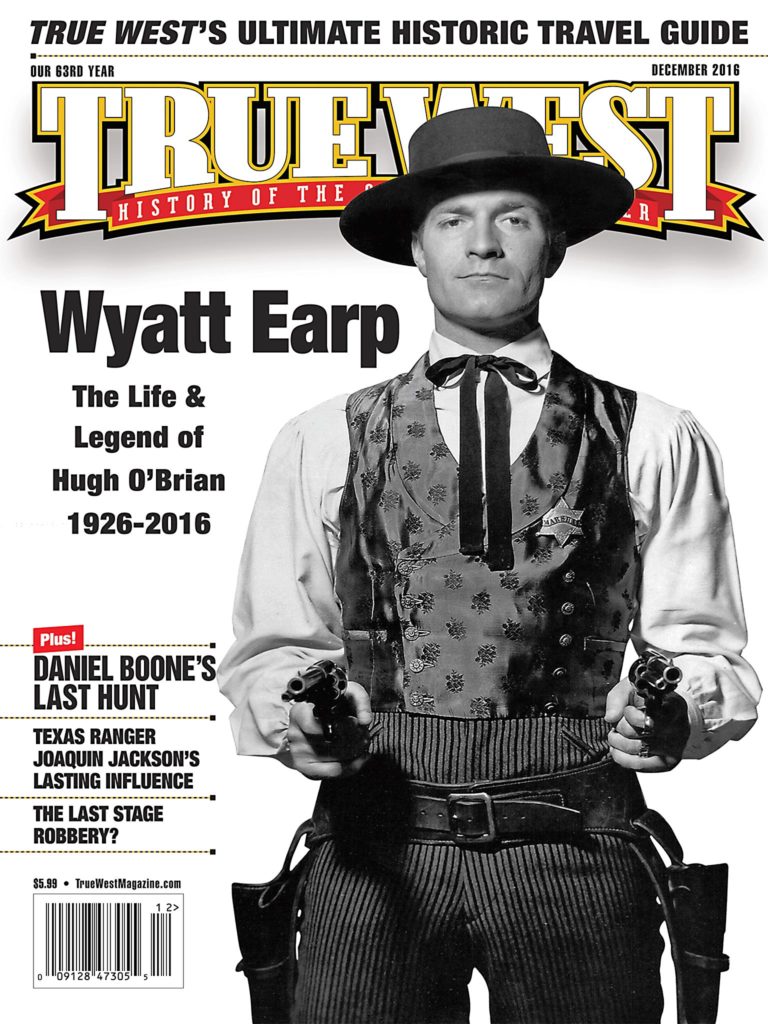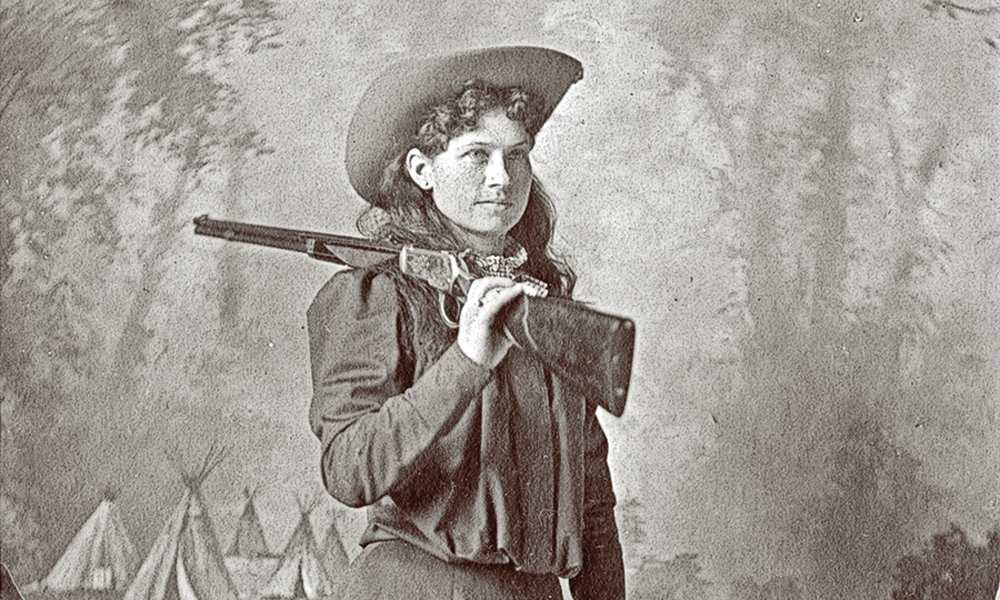
This winter month gives us lots of reasons to celebrate the Old West: from rodeos to women’s rights, from Roy Rogers to Annie Oakley, from one of the world’s great novels to a big hunk of northern America.
It was Nov. 1, 1936 that the Rodeo Cowboy’s Association was founded. Nov. 4, 1924 is marked as a red letter day for the advancement of women—on that day, both Wyoming and Texas elected the nation’s first women governor: Nellie Taylor Ross in Wyoming and Miriam Ferguson in Texas.
The beloved Roy Rogers was born on November 5, 1911—born as Leonard Slye, but known as the ‘King of the Cowboys’ in his 85-plus movies and televisions shows. We’d have him until July 6, 1998. We also commemorate the death of Annie Oakley, “Little Miss Sure Shot” who was the star of Buffalo Bill’s Wild West Show and died on Nov. 3, 1926.
It was Nov. 13, 1880, when New Mexico Territorial Governor Lew Wallace’s novel, Ben Hur, was published. By the way, that exact day in 1878 was when Wallace offered amnesty to many participants of the Lincoln County War, but not to gunfighter Billy the Kid.
And it was on November days that we welcomed into the union five western states: North Dakota and South Dakota—the 39th and 40th states–on Nov 2, 1889; Montana on November 8, 1889; Washington on November 11, 1889 and Oklahoma, the 46th state, on Nov. 16, 1907.
Then there are some of the more juicer items that happened during November:
Nov, 2, 1869: poor Wild Bill Hickok, by a vote of 114-89, he was defeated in his re-election bid for sheriff of Ellis County, Kansas. Wonder if his eventual notoriety every made up for that sting.
Nov. 3, 1883: the U.S. Supreme Court declared American Indians to be “dependent aliens.” What a way to treat the original Americans!
Nov. 5, 1871 was a sad day in Arizona Territory, the day of the Wickenburg Massacre, when a party of “Broncho” Apaches waylaid the stage, killing the driver and five of the seven passengers. One male passenger held off the attackers and was rescued with a female passenger, but she died a few days later of her wounds.
Nov. 7, 1881: Wyatt Earp and Doc Hollday are jailed to await their hearing in the wake of the gunfight near the O.K. Corral. (Doc will die exactly six years and 1 day later, Nov. 8, 1887, in Colorado.)
Nov. 20,1903: Tom Horn–Cavalry scout, Pinkerton detective and outlaw–was hanged for killing a 14 year-old. Some believe he was framed. He made his own rope while he awaited execution, which came on the day before his 43rd birthday.
Nov. 23, 1869: The first of Ned Buntline’s stories about “Buffalo Bill” appeared in the New York Weekly. Buntline was the pseudonym of Col. Edward Zane Carroll Judson. A year later, on Nov. 26, 1870, William F. Cody wanted to acknowledge the writer who made him famous by naming his first son “Elmo Judson” in honor of Buntline. But others talked him into naming the baby Kit Carson Cody.
Nov. 24, 1871: The National Rifle Association was incorporated.
Nov. 25, 1949: Gene Autry’s “Rudolph, the Red-Nosed Reindeer” appeared on the music charts and became the hit of the Christmas season—and still is to this day.


